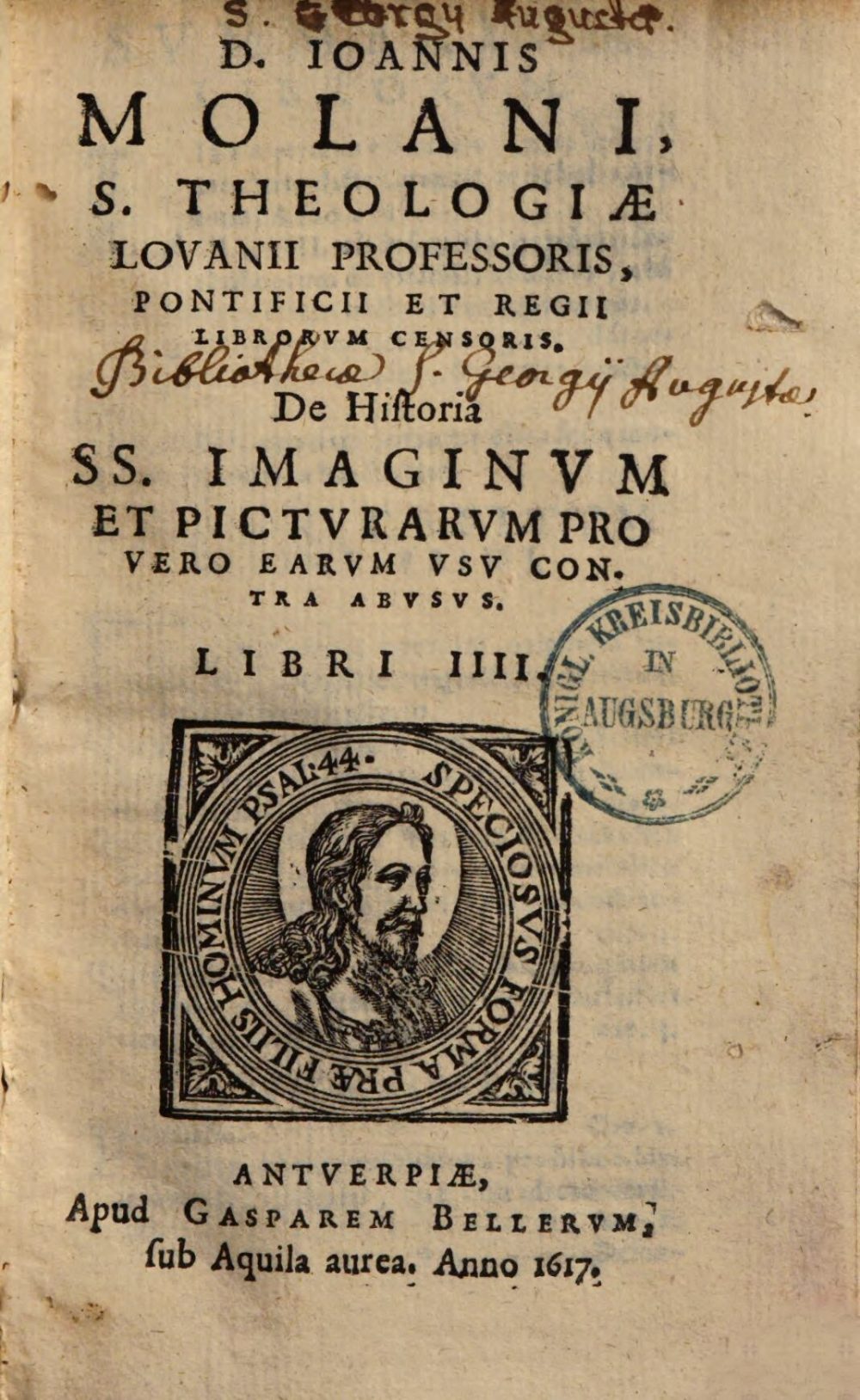
Augsburg, Staats- und Stadtbibliothek — Th H 1475. Digital Reproduction: München, Bayerische Staatsbibliothek, 2015.
Molanus argues that impudence in paintings should be avoided since it stimulates carnal desires instead of devotion.
“Moreover, if all impudence in painting must be avoided, should not everything that provokes carnal pleasure be avoided even more? Ambrosius Catharinus is right to write: ‘The worst thing in our time is that in the great churches as well as in the small chapels you will stumble upon images so lascivious, that whatever discrace nature has seen, our disgrace may be contemplated there, they excite desire and not devotion in our human flesh.’ And Olaus, the historian of the North, says: ‘As if, in the fallen man whose weakness will subject him to a thousand temptations, the call of the flesh coming from within was not enough, and that it was necessary that the provocations coming from without multiplying them still further.'”
“Porro, si in picturis omnis lascivia vitari debeat, quanto magis quicquid ad libidinem provocat? Ut merito hic exclamet Ambr. Catharinus, ‘Quod vero omnium est teterrimum, hac tempestate, in excelsis templis sacellisque offendas picturas tantae lasciviae, ut quicquid natura turpe occuluit turpe nostrum ibi liceat contemplari, excitandam non devotionem sed cuiusvis demortuae carnis libidinem. Quasi inquit Olaus historicus Septemtrionalis, ‘interior caro non sufficeret sibi in deiiciendo homine, in mille tentationes fragilitate tandem sua collapsuro, nisi et externae augerentur provocationes.'”
Molanus 1996, 242.; David Freedberg, “Johannes Molanus on Provocative Paintings. De Historia Sanctarum Imaginum et
Picturarum, Book II, Chapter 42″, Journal of the Warburg and Courtauld Institutes, 1971, Vol. 34 (1971), pp. 229-
245.



